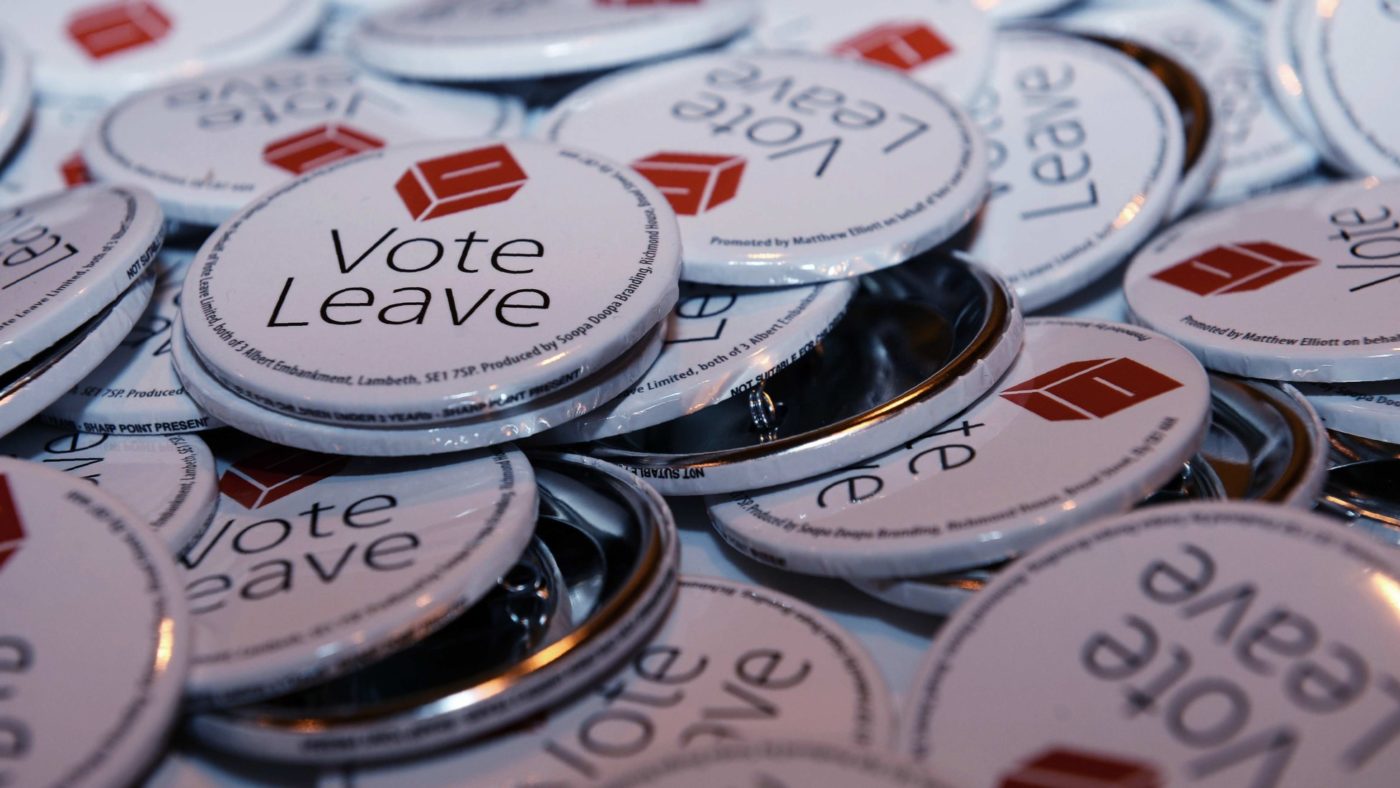I’m passionate about this country. Where else can a young, mixed-race boy, born in Moss Side, Manchester, brought up in a council house, awarded a student scholarship, go on to study at university, become a barrister and ultimately represent his home region in the European Parliament?
It is precisely because of the opportunities this country has given me that I care so much about it.
That’s why the referendum result last June filled me with so much joy. The British people voted to tear off the shackles of the European Union. But, that joy is slowly turning to fear: a dangerous consensus is beginning to emerge between the two main parties, Labour and Conservative, as they slowly drift towards a soft Brexit.
Last week, Tom Watson, deputy leader of the Labour party told BBC Newsnight that the UK could remain in the Single Market and Customs Union after Brexit, by staying as members of both after a transitional period, speculating that it may become a “permanent outcome of the negotiations”.
This radical shift in policy from the Labour front bench is alarming – and goes against the party’s pledge at the last election. Meanwhile, various Cabinet Ministers, spurred on by Anna Soubry and Nicky Morgan, are seeking a transitional arrangement post 2019.
Let’s make no bones about it: the objective of those championing a soft Brexit is to undermine the negotiation process. They hope that they can keep the UK in the exit foyer for long enough for public sentiment or circumstances to change so that we can stay in, or rerun the referendum.
But what they fail to recognise is that the biggest opposition for a “soft” Brexit comes from the side we’re negotiating against: the EU. Even if Labour were in government, negotiating a softer style of Brexit, keeping us inside the Single Market – the EU forces would not allow it.
Michel Barnier said last week that “Brexit means Brexit, leaving the Single Market means leaving the Single Market”. This could not be clearer. Even if a soft Brexit deal were on the table, the EU27 and the EU parliament would never approve a deal which gives the UK a comparable advantage.
Remainers know the position is flawed. But they want the process to fail.
This isn’t simply background noise. As someone who represents the North, I have a clear understanding of the gap between politicians in Westminster and the electorate. And as I listened to Tom Watson last week, I could feel the crack between politicians and the electorate widening even more.
Over 17 million people voted to leave the European Union last year in Britain’s biggest democratic exercise for a century. Thousands of people voted for the first time in their lives. They voted believing their voice was being heard.
They harboured no illusions. Their vote to leave was a vote to leave the Single Market. They weren’t voting for a half-way house. It is for this reason that the convergence of many on the frontbenches towards a soft Brexit is so alarming. This lofty, arrogance that millions were unclear of what they were voting for is utterly misplaced.
Public trust in politicians is fragile at best. If there is one thing we can surely agree on, it is that the referendum re-engaged swathes of the electorate who have never voted before. Turnout was much higher than in previous general elections. We have a once in a generation opportunity to ensure these voters remain engaged in the political process and can be confident that their voice is being heard.
A failure to deliver the Brexit that people voted for will shatter this new found political engagement. Labour and Conservative voters across the country, detached from government and disenfranchised from the mainstream political process, will be pushed once more towards fringe parties like Ukip.
If the Labour party wants to go down the route of the party for a soft Brexit, then so be it. But they do so at their peril. If they continue to backtrack on Brexit, I believe the damage to those millions of Labour Leave supporters will be irreversible.
While the Remainers will certainly not let up, the Government must stay true to the Brexit laid out in the Lancaster House speech. It must not let itself be pushed into a corner with the hope of a possible free trade deal at the end.
David Davis must continue to reiterate throughout the process that Britain will walk away if faced with the choice of accepting a bad deal or a withdrawal bill. If he doesn’t, then we may as well throw the towel in now.


